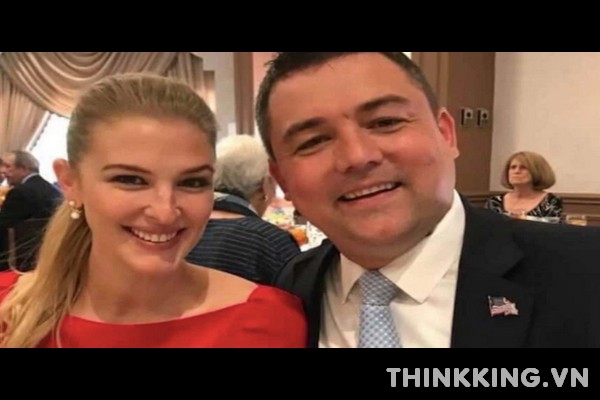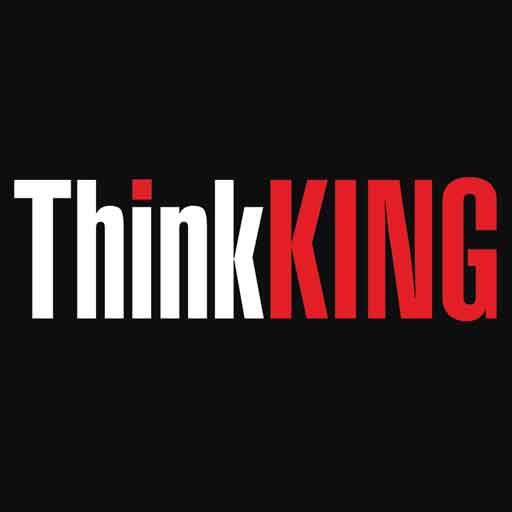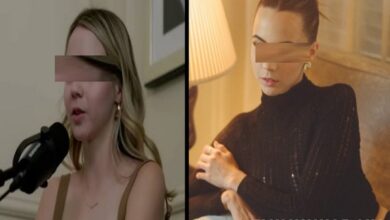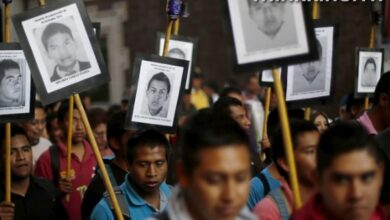Exploring the Impact of the Bridget Ziegler Tape on Public Life
The unfolding scandal of the “Bridget Ziegler Images Tape Video Full,” covered extensively by Thinkking.vn, has cast a stark light on the intersection of privacy, technology, and public trust. Initially introduced as a burgeoning controversy, the situation rapidly escalated, placing Bridget Ziegler at the heart of a heated debate over personal conduct and digital media’s role in modern politics. This introductory piece sets the stage for an in-depth exploration of the ethical and legal challenges that such digital controversies present, especially concerning public figures whose personal lives often come under intense scrutiny.
The Alleged Tapes

The scandal surrounding Bridget Ziegler, a conservative figure, reached a fever pitch with the discovery of an alleged tape. Dubbed the Bridget Ziegler Tape, this piece of media became the center of a whirlwind of speculation and commentary. Initial reports on the tape were frenzied, with various media outlets racing to frame the narrative, each adding their own spin to the unfolding story. The coverage ranged from sensationalist headlines to more measured analyses of the tape’s authenticity and potential impact on Ziegler’s career and personal life.
As the public grappled with the initial shock, a second wave of intrigue hit with the emergence of additional images, further complicating the situation. These Bridget Ziegler Images prompted a deeper investigation into the context and content of the recordings, leaving journalists and the public alike to sift through the layers of implication. The second discovery not only amplified the scrutiny on Ziegler but also raised critical questions about privacy, consent, and the weaponization of intimate imagery in the digital age.
Together, the Bridget Ziegler Tape and subsequent Bridget Ziegler Images painted a complex picture that went beyond mere scandal. They touched on the intersections of public morality, political ideology, and personal vulnerability, casting a long shadow over the narrative that had been quickly constructed by the media and inviting a broader discourse on the repercussions of such revelations in the political arena.
Political Fallout

Amid the tumultuous revelations of the Bridget Ziegler Tape and its full video counterpart, the political landscape bristled with tension. The emergence of the tapes incited a torrent of calls for Bridget Ziegler’s resignation. Critics and constituents alike pointed to the discrepancy between her public persona and the private indiscretions now laid bare. The Bridget Ziegler Images Tape Video Full became a rallying cry for those demanding accountability, and the scandal threatened to dismantle the foundation of trust that underpinned her political standing.
As the situation unfolded, the narrative took on a tone of hypocrisy, especially given Ziegler’s previous stances on family values and morality. The Bridget Ziegler Tape not only generated a scandal of personal nature but also sparked a public debate over the authenticity of her advocacy. The stark contrast between Ziegler’s public advocacy and her alleged private conduct fueled accusations of duplicity. This juxtaposition intensified the scrutiny on her actions, with the public and political adversaries questioning the integrity of her ideological positions.
The fallout was immediate and far-reaching, leaving Ziegler’s career in a precarious balance. The controversy raised difficult questions about the intersection of personal failings and public service, and whether such a divide could—or should—be bridged in the realm of political life. The debate raged on, reflecting the complexities of modern political scandals and the often unforgiving court of public opinion.
Legal and Ethical Implications
The unveiling of the Bridget Ziegler Images thrust the situation into the legal sphere, where the intricacies of criminal law became a focal point of the discourse. Authorities initiated criminal investigations to ascertain the legality of the tape’s dissemination and to determine if any laws had been transgressed in the process of its acquisition or release. The legal complexities surrounding the evidence in the Bridget Ziegler Images were manifold, involving potential charges of privacy violations, unauthorized recording, and the distribution of potentially illicit material.
Beyond the strictly legal dimensions, ethical implications loomed large. The incident sparked a debate on the ethics of media conduct, the right to privacy, and the moral responsibilities of public figures. Questions arose about the balance between the public’s right to be informed and an individual’s right to privacy. The scandal also highlighted the ethical quagmire presented by the possible exploitation of digital media to harm reputations and the potential for such materials to be weaponized in political vendettas.
The Bridget Ziegler case became a touchstone for discussions on consent, digital rights, and the protection of personal information in an era where technology often outpaces legislation. The legal and ethical implications of the case prompted a reexamination of existing laws and policies, calling for a more nuanced approach to handling such sensitive issues in the digital age. As the investigations progressed, they underscored the need for clear legal frameworks to address the evolving challenges presented by the intersection of technology, privacy, and personal conduct.
Bridget Ziegler’s Position

Bridget Ziegler’s position, particularly her stance on education and LGBTQ+ issues, came under intense scrutiny as a result of the scandal involving the images tape video. Her public policies, which may have included advocacy for conservative approaches to education and traditional family values, were juxtaposed against the backdrop of the controversy.
In light of the scandal, critics and political commentators dissected Ziegler’s voting record, public statements, and policy proposals, seeking inconsistencies or contradictions with her alleged private actions as depicted in the tape. The Bridget Ziegler Images Tape Video Full became a lens through which her policies were re-evaluated, especially those related to morality, personal conduct, and LGBTQ+ rights.
For some, the scandal underscored what they perceived as a gap between personal behavior and public advocacy, potentially undermining Ziegler’s moral authority on issues she championed. For others, it raised questions about the relevance of a politician’s private life to their public service and whether such matters should bear on their policy stances.
Ziegler’s supporters might argue that personal misjudgments should not detract from her policy positions or her effectiveness as a public servant. Meanwhile, detractors might see in the scandal a critical flaw that calls into question her ability to represent and legislate on matters of public morality and ethics.
The scrutiny of Ziegler’s public policies in the context of the scandal became a contentious topic, illustrating the complex relationship between a politician’s personal life and their public persona, as well as the challenges of maintaining personal privacy in the digital age.
Christian Ziegler’s Predicament
Christian Ziegler’s predicament emerged as a significant subplot in the unfolding drama of the Bridget Ziegler Tape scandal. As a consequence of the controversy, Christian Ziegler faced the potential stripping of his authority and salary within the Republican Party of Florida, where he held a prominent position.
The impact on Christian Ziegler’s role within the party was multifaceted. On a personal level, the scandal involving his spouse could have ramifications for his reputation and effectiveness as a leader. His ability to command respect and exert influence within the party might have been compromised, as colleagues and constituents re-evaluated their trust and confidence in his leadership in light of the tape’s contents and the controversy surrounding it.
From a political perspective, the Republican Party of Florida had to manage the optics of the scandal, balancing its support for a key figure against the potential backlash from party members and voters. The party’s response to Christian Ziegler’s situation would reflect its stance on ethical conduct and its broader values, possibly influencing public perception and electoral outcomes.
The situation also raised questions about the extent to which a public figure should be held accountable for the actions of their spouse, particularly in a political context where personal and professional lives are deeply intertwined. The decisions made by the party regarding Christian Ziegler’s authority and salary would set a precedent for how such matters are dealt with in the future.
The Bridget Ziegler Tape scandal, therefore, not only affected the individuals directly involved but also had wider implications for the political entities they represented. Christian Ziegler’s predicament became a barometer for the party’s internal dynamics and its public image, with the potential to influence its policies, leadership structure, and the political landscape in Florida.
Public and Media Response
The public and media response to the Bridget Ziegler Images scandal played a crucial role in shaping the discourse around the event. Community backlash was palpable, as many demanded greater transparency and accountability from their public officials.
The public’s demand for transparency stemmed from a growing expectation that elected officials live up to the standards they set in their public and private lives. In the era of digital media, the line between the two can become blurred, and the electorate often seeks reassurance that their leaders’ conduct aligns with the values they promote.
Media outlets, both traditional and social, were likely at the forefront of reporting on the scandal, with varying degrees of focus on the ethical, legal, and political aspects of the situation. The coverage could have ranged from investigative journalism seeking to uncover the facts of the case, to opinion pieces discussing the broader implications for privacy and digital rights.
The intensity of the community backlash would likely depend on several factors, including:
- The nature of the images: If the images were perceived as a significant breach of expected conduct, the backlash would be more severe.
- The response of the Zieglers: How Bridget and Christian Ziegler addressed the scandal would influence public opinion. Transparent communication and taking responsibility could mitigate negative responses, while evasion or deflection might exacerbate them.
- Political alignment: Responses might also fall along political lines, with supporters more willing to offer forgiveness and opponents using the scandal as ammunition.
- Cultural context: The community’s cultural and ethical standards would color their response. More conservative constituencies might react more strongly to perceived moral failings.
The scandal thus became a touchstone for discussions about morality in public office, the responsibilities of elected officials to uphold public trust, and the role of the media in holding public figures accountable. The public’s insistence on transparency and accountability reflected a broader societal trend towards demanding ethical consistency and integrity from those in power.
Conclusion: The Uncertain Road Ahead
The scandal involving the Bridget Ziegler images tape video marks a tumultuous chapter for the Ziegler family and presents an uncertain road ahead. The long-term implications of this controversy are likely to be profound, affecting not just their personal lives but also their political trajectories.
For Bridget Ziegler, the immediate future may involve a continued battle to address the legal and ethical concerns raised by the tape. She may need to engage in a public relations campaign to rehabilitate her image, depending on the outcome of any investigations and the court of public opinion. The controversy could potentially alter her policymaking priorities or inspire advocacy for privacy rights and reform in how digital media is treated under the law.
Christian Ziegler’s future within the Republican Party of Florida and his broader political career may hinge on the unfolding narrative around the scandal. If he manages to navigate the situation with tact and maintains his professional responsibilities without interruption, he could weather the storm with his career intact. However, if the party or public sentiment turns decisively against him, he could face a challenging path to regain his standing.
The scandal also serves as a reflection on societal attitudes towards privacy, technology, and personal conduct. Public figures are increasingly held to account for their digital footprints, and the Zieglers’ situation underscores the potential consequences of this new reality. As technology continues to evolve, so too will the standards by which behavior is judged, both legally and morally.
Ultimately, the Zieglers’ future may depend on their ability to respond to the controversy with resilience and to adapt to the shifting landscape. The scandal may prompt a reevaluation of their roles in public life and lead to a redefinition of their personal and professional identities. The journey ahead for the Ziegler family is likely to be marked by a quest for redemption, reformation, or possibly reinvention, as they navigate the complex interplay of politics, public perception, and personal values.
Bridget Ziegler Images Tape Video Full – Bridget Ziegler Tape – Bridget Ziegler Images
| Please note that all information presented in this article has been obtained from a variety of sources, including wikipedia.org and several other newspapers. Although we have tried our best to verify all information, we cannot guarantee that everything mentioned is accurate and 100% verified. Therefore, we recommend caution when referencing this article or using it as a source in your own research or report. |










